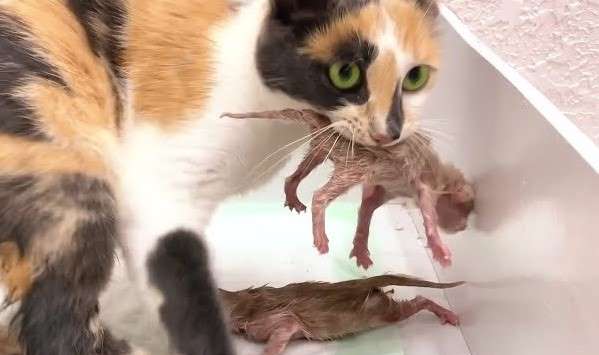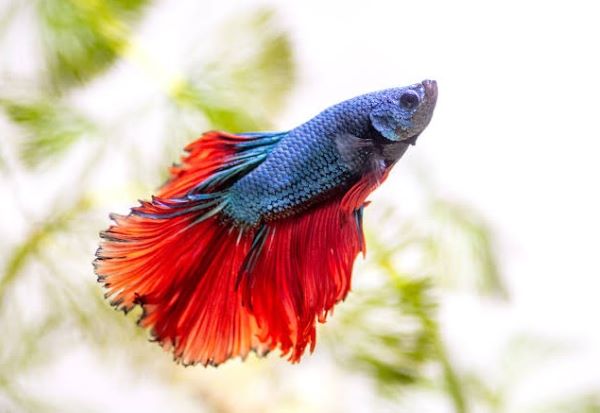If you are a lover of breeding cats or caring for stray cats that often have litters of kittens, seeing a mother cat consume one of her offspring can be an incredibly terrifying and upsetting experience. Luckily, such incidents are relatively rare, but it is possible. In this article, we will explore five possible reasons why cats eat their babies, shedding light on this confusing aspect of feline maternal instincts.
1. Stillborn Kittens:
If the kitten is stillborn, it can quickly spread bacteria to the area where other kittens are still alive, so the cat has no choice but to consume it if it is stillborn. It does provide her with essential nutrients that she passes through her milk and also to keep herself safe from predators.
2. Birth Defects:
When a mother cat senses if a kitten has birth defects, even if it may look normal to you, she can realize that the kitten won’t survive long, and the only way to prevent the problem of having a dead kitten attract predators is by eating him. While this may seem harsh, it’s an evolutionary behavior to protect the other baby cats.
3. She doesn’t recognize her kittens:
Mother cats use their strong sense of smell to recognize their offspring. The common causes of change in scent may be because she gave birth through a caesarian section or because of over-manipulation, where humans touch and hold the newborn kittens a lot, making the mother cat mistake the kitten for a predator, and that confuses the mother cat so she will end up eating her baby.
4. Maternal Stress and Threatened:
Stress and threats can significantly impact a mother cat’s behavior towards her kittens; if the mother cat is subjected to excessive stress, whether due to environmental factors, disruptions in her routine, or physical discomfort, it can trigger an abnormal response. The heightened threat levels may lead the mother cat to perceive her kittens as a source of additional stress, prompting her to engage in cannibalistic behavior as a means to alleviate her anxiety.
5. Malnourished:
When a mother cat is malnourished, she may instinctively consume one or more of her kittens to compensate for the lack of nutrients she requires. If she believes that consuming one or two kittens will provide enough sustenance to nourish the remaining offspring, she may exhibit this behavior. However, ensuring that the mother cat is adequately fed and receives a good diet can help prevent this behavior. By providing her with sufficient food and meeting her nutritional needs, you can ensure that she can adequately feed and care for her babies without eating them.
Do Male Cats Eat Kittens?
Most of the time, male cats will not react violently to kittens and care more about protecting their area and collecting females for mating. There is little risk that the father cat will even get close to the kittens during the first few weeks. But, male cats can kill kittens to prove dominance and encourage a female into heat.
Conclusion:
I know it’s shocking to know that a mother cat eats their kittens, but you should remember that it is a natural instinctive behavior, and that can happen when the mother cat is stressed, malnourished, and many other reasons. It is important to give your mother cat extra care during the birthing process and provide her with ample food, water, and a stress-free place to nurse and nurture her babies.




Leave a Comment